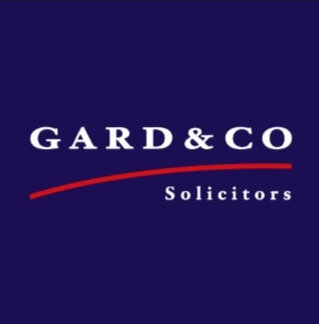Best Lawsuits & Disputes Lawyers in Plymouth
Share your needs with us, get contacted by law firms.
Free. Takes 2 min.
List of the best lawyers in Plymouth, United Kingdom
About Lawsuits & Disputes Law in Plymouth, United Kingdom
Lawsuits and disputes arise when individuals or organizations in Plymouth cannot resolve disagreements privately and must seek formal legal solutions. These legal conflicts cover a wide range of issues, from contract breaches and property disagreements to personal injury claims and consumer complaints. Plymouth, as part of England and Wales, follows the same legal framework for civil litigation and dispute resolution. Local courts like the Plymouth Combined Court Centre handle such matters, ensuring that parties can present their cases for a fair resolution. Familiarity with the local legal landscape helps individuals and businesses make informed decisions when facing or considering legal action.
Why You May Need a Lawyer
Navigating a lawsuit or dispute can be complex and stressful, especially without legal expertise. Common situations where people in Plymouth seek legal assistance include:
- Being sued or wanting to bring a claim against another party
- Disputes over contracts, property boundaries, or landlord and tenant issues
- Personal injury claims following accidents
- Family law disputes, including divorce and child arrangements
- Debt recovery and enforcement actions
- Negligence claims against professionals or organizations
- Employment-related disputes, such as unfair dismissal or workplace discrimination
- Inheritance and Will contests
A lawyer provides guidance on the strength of your case, legal rights and responsibilities, and the best strategy for either pursuing or defending a claim. Early legal advice can prevent costly mistakes and may even help resolve the matter without going to court.
Local Laws Overview
In Plymouth, civil disputes and lawsuits are governed by the law of England and Wales. Important aspects include:
- Civil Procedure: The Civil Procedure Rules (CPR) set out how cases must be managed, including deadlines, required documents, and court processes.
- Court System: Plymouth claims are usually heard at the Plymouth Combined Court Centre. Small claims, fast track, and multi-track are the three main court routes, depending on the claim value and complexity.
- Alternative Dispute Resolution: Mediation and negotiation are encouraged before formal litigation. Courts may expect parties to attempt these steps and can penalize those who do not cooperate.
- Time Limits: Strict limitation periods exist for starting different types of claims, such as six years for most contract disputes and three years for personal injury claims.
- Costs: The losing party may be ordered to pay some or all of the winner’s legal costs, especially in more serious cases.
Understanding these elements is crucial for anyone involved in a legal dispute in Plymouth.
Frequently Asked Questions
What should I do if I have received a legal claim or court papers?
You should immediately seek legal advice and check the deadlines for your response. Ignoring papers could result in the court making judgment against you by default.
How do I start a claim against someone in Plymouth?
You usually begin by sending a formal letter outlining your claim. If not resolved, you can file a claim at the appropriate court either online or by post. Legal advice at the outset is recommended.
What is the difference between mediation and going to court?
Mediation is a voluntary process where an independent third party helps both sides reach an agreement. It is usually faster and less expensive than court. If mediation fails, the court process remains available.
How long does a civil lawsuit take in Plymouth?
The timescale depends on the complexity and value of the case. Simple small claims may resolve within a few months, while more complex disputes can take a year or longer.
What happens at a court hearing for a civil dispute?
Parties present their evidence and arguments before a judge, who then makes a decision. Not all cases reach a full hearing, as many settle beforehand.
Will I have to pay the other side's legal costs if I lose?
It’s possible. The general rule is that the losing party pays the winner's costs, but the court can make different orders depending on the circumstances.
Can I represent myself in a lawsuit?
Yes, litigants in person may represent themselves, but it can be challenging. Understanding procedures and legal principles is essential, and professional advice is strongly encouraged.
What is a small claim and what sort of disputes does it cover?
Small claims cover most disputes worth up to £10,000, such as consumer disputes, faulty goods, or minor property disagreements. The process is simpler, and parties often represent themselves.
How much does it cost to bring a lawsuit?
You will need to pay court fees, and possibly legal fees, unless you qualify for help with fees. Costs increase with claim value and complexity, so seeking advice on likely expenses is wise.
What is the limitation period for bringing a civil claim?
Time limits differ by claim type. For most contractual and property cases, it is six years from the date the problem arose. For personal injury, it is usually three years from the date of injury or knowledge of harm.
Additional Resources
Consider contacting or consulting the following resources for guidance and information on laws and disputes in Plymouth:
- Plymouth Combined Court Centre - for court services, claim forms, and hearing information
- Citizens Advice Plymouth - for free initial advice on dispute resolution and legal rights
- Devon and Cornwall Law Society - for connecting with local solicitors experienced in disputes
- Plymouth Mediation Service - for help resolving disputes without going to court
- Legal Ombudsman - for complaints about solicitors and other legal professionals
- Find a Solicitor service by The Law Society - to locate a regulated lawyer in Plymouth
Next Steps
If you are facing a legal dispute in Plymouth, act quickly to protect your interests. Start by gathering all relevant documents, correspondence, and evidence related to the dispute. Consider seeking initial advice from Citizens Advice or a solicitor to understand your rights, obligations, and possible outcomes. If litigation appears likely, choose a lawyer with experience in the type of dispute you face. Many offer an initial consultation, which is often free or low cost. Do not ignore any legal papers or court deadlines, and keep a clear record of all interactions and actions taken. Early and informed action gives you the best chance of resolving your dispute efficiently, fairly, and with minimal stress.
Lawzana helps you find the best lawyers and law firms in Plymouth through a curated and pre-screened list of qualified legal professionals. Our platform offers rankings and detailed profiles of attorneys and law firms, allowing you to compare based on practice areas, including Lawsuits & Disputes, experience, and client feedback.
Each profile includes a description of the firm's areas of practice, client reviews, team members and partners, year of establishment, spoken languages, office locations, contact information, social media presence, and any published articles or resources. Most firms on our platform speak English and are experienced in both local and international legal matters.
Get a quote from top-rated law firms in Plymouth, United Kingdom — quickly, securely, and without unnecessary hassle.
Disclaimer:
The information provided on this page is for general informational purposes only and does not constitute legal advice. While we strive to ensure the accuracy and relevance of the content, legal information may change over time, and interpretations of the law can vary. You should always consult with a qualified legal professional for advice specific to your situation.
We disclaim all liability for actions taken or not taken based on the content of this page. If you believe any information is incorrect or outdated, please contact us, and we will review and update it where appropriate.
Browse lawsuits & disputes law firms by service in Plymouth, United Kingdom
Plymouth, United Kingdom Attorneys in related practice areas.










